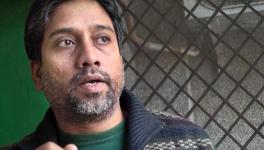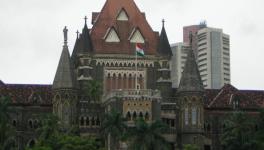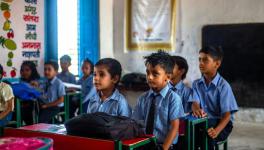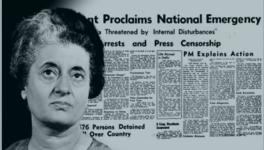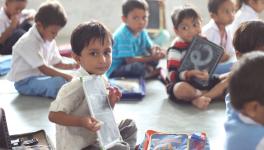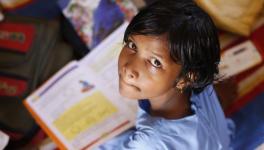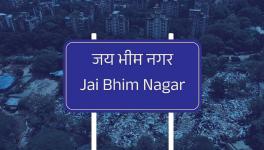Picking Humanity Over Religion: A Small but Critical Step
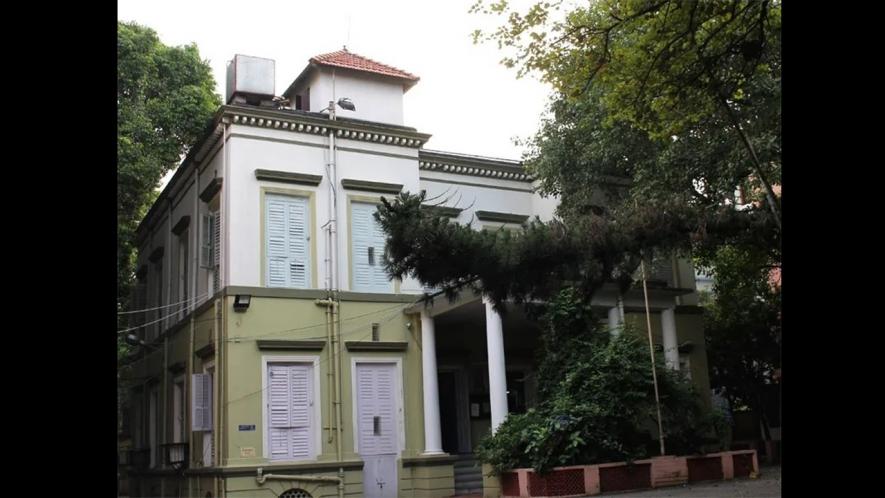
Principal's office of Bethune College, Kolkata, which included Humanity as an option under the religion category. Image Courtesy: college dunia
A college admission form introducing new options under ‘religion’? Talking about humanity, secular, non-religious, atheism!
Well, in an ambience loaded with religiosity and its increasing conflation with the State, it is rather difficult to believe that some colleges may take such a creative step to convey how they see what is happening around them? No doubt this is a small step but, as noted by analysts, this is an attempt to break/challenge the ‘construction of identity, thought and social and political space, indirectly conveying the vision of a secular and diverse India.’
The significance of this little step can be better understood if one looks into the fact that the elections held to the 17th Lok Sabha -- which has returned the Bharatiya Janata Party (BJP) to power -- have demonstrated that BJP is ‘the most preferred party of young India’. It drew support cutting across caste as well as class lines. This is the same BJP which, along with its ‘Parivar’ siblings, has consciously tried to conflate religion with exercise of power and has been successful in collapsing the majority faith into rabid nationalism that targets differences and dissent and other specific groups, as the ‘other’ according to its worldview.
A few hundreds or, say, few thousands of students seeking admission to those colleges every year being exposed to the idea of education being imparted without any compulsion to declare one’s religion, is definitely a welcome thing.
Interestingly, of late, what one observes is that there are new actors coming into play to enforce what Article 28(3) of the Constitution has underlined:
“No person attending any educational institution recognised by the State or receiving aid out of State funds shall be required to take part in any religious instruction that may be imparted in such institution or to attend any religious worship that may be conducted in such institution or in any premises attached thereto unless such person or, if such person is a minor, his guardian has given his consent thereto Cultural and Educational Rights.”
One can look at the public interest litigation filed by an advocate Veenayak Shah from Jabalpur (Madhya Pradesh) focusing on the issue of prayer in over 1,100 Kendriya Vidyalaya government schools and how they “violate the Constitution.”. The petition underlined how Hindi prayers, including shlokas like ‘asato ma sadgamaya’ and other prayers promote particular religious beliefs and thus parents of students from religious minorities, agnostics etc. might find them "constitutionally impermissible" What is important is that the Supreme Court observed that this was a serious issue and issued a notice to the Centre. One also learns that it has placed the issue before a Constitution bench for a decision in the matter.
A bench led by Justice Rohinton Nariman said the question raised in a public interest litigation filed by lawyer Veenayak Shah was of seminal importance and placed it before the Chief Justice to refer to a Constitution bench of at least five judges. (-do-)
It is worth contemplating whether educational institutions can compel students to have religious instruction under the name of moral education. Perhaps the draft committee of the Constitution, chaired by Dr B R Ambedkar, was aware of this possibility and had made it explicit that any such act would be a violation of Article 19 which gives right to freedom of expression to every citizen and its violation would be, in fact, a violation of Article 25(1) which says:
“Subject to public order, morality and health and to the other provisions of this Part, all person are equally entitled to freedom of conscience and the right to freely profess, practice and propagate religion.”
Looking back, one can see the progressive nature of these various articles in the Constitution, instituted by a draft committee -- majority of whom were believers and hardly a few who were declared atheists -- who were keen that no matter what it takes, schools administered by State funds should never be allowed to give religious instruction in any form. May be after witnessing the Partition of the country, where religion was used as a basis of nationhood by a significant section of the population and which witnessed tremendous bloodletting, they could foresee the importance of keeping religion restricted to one’s private domain.
What is worth taking note of is that even NCERT (National Council for Educational Research and Training), which is tasked by the Government “to assist and advise the Central and State Governments on policies and programmes for qualitative improvement in school education” and also undertake “research in areas related to school education; prepare and publish model textbooks” etc., has also noted something amiss in the way prayers are held in school assemblies across the country and how these alienate children from minority communities further. It was only last year that news had appeared in a section of the media about a manual prepared by it underlining these difficulties:
A manual prepared by the National Council for Educational Research and Training (NCERT) has pointed out that children from minority communities at times find the prayers in the school assemblies and picture of gods and goddesses on the walls alien to them and has suggested some changes including the celebration of festivals related to religious minorities in schools, sensitive handling of these children during religious functions celebrated in schools, and adequate representation of minority parents in the School Management Committees (SMC).
It also emphasised that empowerment of the socially disadvantaged groups, SCs (scheduled castes), STs (scheduled tribes), OBCs (other backward classes) and the minorities should remain on the priority list of the country, because these groups still lag behind the rest of the society due to their social, economic and educational backwardness:
It has also noted how discriminatory practices against these groups by teachers, peer groups and system are still prevalent in some schools and how the school management committee should play an important role to curtail such discrimination and provide a conducive atmosphere.
A perusal of judgements by various courts also corroborate the fact that the judiciary has tried its best to protect the fundamental spirit of the Constitution mentioned earlier. For example, the Bombay High Court had held that a ‘[t]eacher cannot be forced to fold his hands while standing in the school prayers or hold his hand in the front while taking oath of the preamble of the Constitution.’ It had said that forcing a teacher to do so would be a violation of the fundamental rights enshrined in the Constitution. Justice Abhay Oka and Revethi Mohiti Dhere of the Bombay High Court had observed this while taking up the petition of a teacher Sanjay Salwe, who worked in Matoshri Savitribai Phule Vidyalay in Nashik town of Western Maharashtra.
The school authorities had penalised Salwe for 'indiscipline' and refused to give him a higher pay scale for not folding his hands while prayers were being held. The teacher had contended that the prayer was of religious nature and, therefore, he did not fold his hands. The teacher, who had an excellent record while in the school since 1996, had argued that he had the right to freedom of expression as per Article 19 of the Constitution and, therefore, he could not be forced to stand with folded hands when the prayers are sung. Initially, he had approached the education department, which had ruled in his favour, but when school management refused to obey its order, he took the matter to Bombay High Court.
Coming back to news from Bengal that colleges have opened new options under ‘religion’ column, it would be opportune to once again underline the importance of this ‘small step’:
"[i]ts importance lies in the fact that educational institutions are taking it; there young people are led to understand their surroundings and their place in history. More, the last five years have seen grave assaults on the autonomy of these institutions. The opening up of the ‘religion’ option through terms ranging from ‘humanity’ to ‘non-religious’ therefore suggests both an assertion of autonomy and the desire to encourage independent thought among students.
The writer is a senior journalist. The views are personal.
Get the latest reports & analysis with people's perspective on Protests, movements & deep analytical videos, discussions of the current affairs in your Telegram app. Subscribe to NewsClick's Telegram channel & get Real-Time updates on stories, as they get published on our website.









